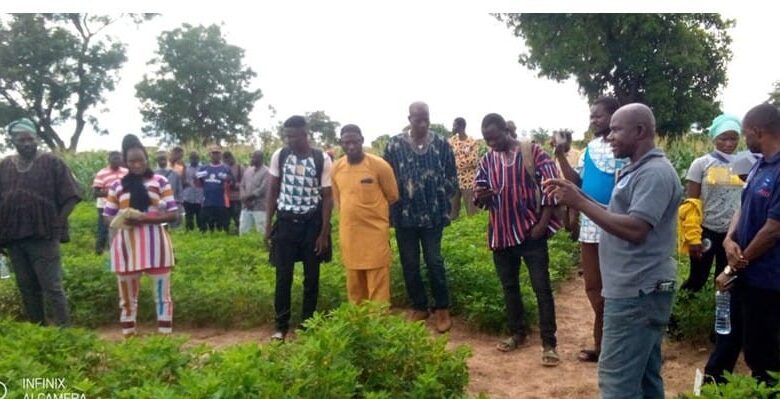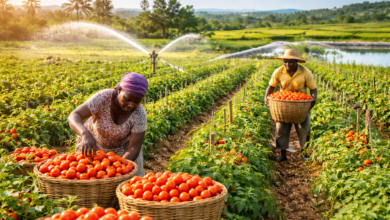CSIR-SARI enhances groundnut farming with new technologies

The Council for Scientific and Industrial Research – Savanna Agricultural Research Institute (CSIR-SARI) has introduced advanced groundnut farming technologies to farmers in Wa Municipality.
The initiative is designed to enhance groundnut yields and improve the economic stability of smallholder farmers, translating to increased household income and food security.
Supported by the USAID Feed the Future Innovation Lab for Peanut project, the initiative aims to significantly boost groundnut production and productivity among smallholder farmers, thereby increasing their income and promoting better nutrition and health outcomes.
At a field day event in Wa, Dr. Mahama G. Yakubu, an agronomist and Senior Research Scientist at CSIR-SARI, addressed the challenges affecting groundnut yields in the region, which currently average below 0.5 tonnes per hectare—considerably lower than the national average of approximately 1.3 tonnes per hectare. He cited the use of low-yielding, disease-susceptible groundnut varieties and the absence of best practices as primary reasons for these low yields.
Dr. Yakubu advised farmers on the importance of choosing suitable land and following proper land preparation techniques for optimal groundnut production. He explained that factors such as adaptability, maturity period, yield potential, and disease tolerance should guide farmers in selecting the best groundnut varieties.
Highlighting the significance of timing, Dr. Yakubu stressed that proper planting schedules are essential for maximizing yield, and he warned that delayed harvesting negatively impacts grain quality and market value. He also advised against practices such as heaping harvested produce or drying it on bare ground, which can degrade grain quality.
“To improve plant establishment and boost yield, I recommend applying phosphorus-rich fertilizers along with sulphate and calcium,” Dr. Yakubu added. He also encouraged farmers to integrate pest management strategies to protect groundnut crops from pests, ensuring a higher-quality harvest.
Mr. Asieku Yahaya, a Research Scientist with CSIR-SARI at the Wa station, explained that groundnuts benefit from residual soil fertility, reducing the need for synthetic fertilizers. He noted that in certain conditions, additional fertilizers might be unnecessary if the crop is planted on well-managed, nutrient-rich soil.
The initiative not only supports increased productivity but also represents a key step toward sustainable agricultural development, fostering resilience and profitability for Ghana’s smallholder farmers.




